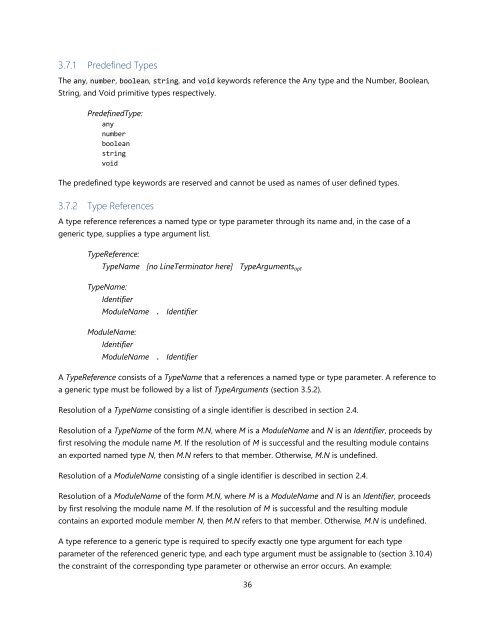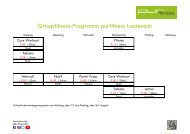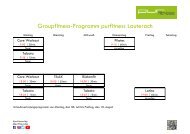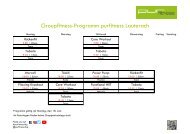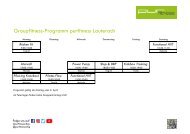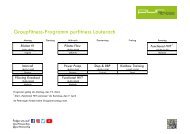TypeScript Language Specification v1.5
TypeScript Language Specification v1.5
TypeScript Language Specification v1.5
Create successful ePaper yourself
Turn your PDF publications into a flip-book with our unique Google optimized e-Paper software.
3.7.1 Predefined Types<br />
The any, number, boolean, string, and void keywords reference the Any type and the Number, Boolean,<br />
String, and Void primitive types respectively.<br />
PredefinedType:<br />
any<br />
number<br />
boolean<br />
string<br />
void<br />
The predefined type keywords are reserved and cannot be used as names of user defined types.<br />
3.7.2 Type References<br />
A type reference references a named type or type parameter through its name and, in the case of a<br />
generic type, supplies a type argument list.<br />
TypeReference:<br />
TypeName [no LineTerminator here] TypeArguments opt<br />
TypeName:<br />
Identifier<br />
ModuleName . Identifier<br />
ModuleName:<br />
Identifier<br />
ModuleName . Identifier<br />
A TypeReference consists of a TypeName that a references a named type or type parameter. A reference to<br />
a generic type must be followed by a list of TypeArguments (section 3.5.2).<br />
Resolution of a TypeName consisting of a single identifier is described in section 2.4.<br />
Resolution of a TypeName of the form M.N, where M is a ModuleName and N is an Identifier, proceeds by<br />
first resolving the module name M. If the resolution of M is successful and the resulting module contains<br />
an exported named type N, then M.N refers to that member. Otherwise, M.N is undefined.<br />
Resolution of a ModuleName consisting of a single identifier is described in section 2.4.<br />
Resolution of a ModuleName of the form M.N, where M is a ModuleName and N is an Identifier, proceeds<br />
by first resolving the module name M. If the resolution of M is successful and the resulting module<br />
contains an exported module member N, then M.N refers to that member. Otherwise, M.N is undefined.<br />
A type reference to a generic type is required to specify exactly one type argument for each type<br />
parameter of the referenced generic type, and each type argument must be assignable to (section 3.10.4)<br />
the constraint of the corresponding type parameter or otherwise an error occurs. An example:<br />
36


